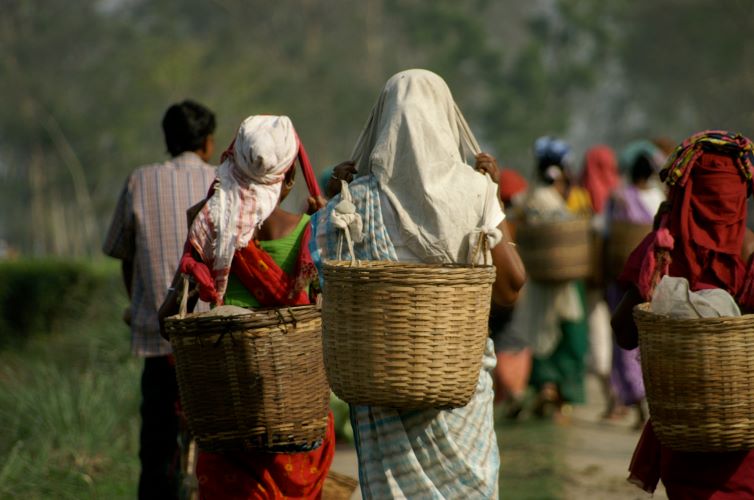A coalition of India’s central trade unions held a two-day nationwide strike on 28-29 March to protest against what they say are the Indian central government’s “anti-worker, anti-farmer, anti-people and anti-national policies”.
News
Indian workers strike in bid for improved employment rights
The unions’ demands include the scrapping of the four new labour codes and no privatisation of any state-owned assets. They are also calling for the government’s proposed National Monetisation Pipeline (NMP) to be scrapped.
![]() Photograph: iStock - credit pixelfusion3d
Photograph: iStock - credit pixelfusion3d
This is designed to encourage private sector investment in major new infrastructure projects by allowing private companies to operate and run government-owned assets – like roads, railways and power plants – for a temporary time period. In return, the companies would have to make advance payments to the government, pass a share of the revenue generated back to the government and invest money in developing and maintaining the infrastructure asset.
The various unions are also calling for higher wages for rural workers who are entitled to 100 days of paid unskilled manual work on public works projects under the MNREGA (Mahatma Gandhi Rural Employment Guarantee Act). They also want more secure employment status for contract workers.
The central trade unions that were involved in the strike and the ongoing campaign for improved employment rights and no privatisation of state-owed assets are INTUC, AITUC, HMS, CITU, AIUTUC, TUCC, SEWA, AICCTU, LPF and UTUC.
Protestors arrested
Several trade union members owing allegiance to CITU, AITUC, INTUC and Labour Progressive Front were arrested at different places in Tiruchirappalli in Tamil Nadu after they resorted to picketing and blocking public highways.
Thousands of workers from the state-owned steelmaker Rashtriya Ispat Nigam Limited (RINL) – also known as Vizag Steel, based in Visakhapatnam – and NMDC Limited, a mining and ire ore development company previously known as National Mineral Development Corporation, boycotted work for two days as part of the strike. This affected steel production and mining operations at the two companies, said a union leader.
Rajesh Sandhu, branch secretary for the Sayukt Khadaan Mazdoor Sangh trade union representing workers at NMDC Limited, said all non-executive workers at NMDC had boycotted work to join the two-day strike. Over 10,000 non-executive employees of the company joined the protest at NMDC mines and offices in Madhya Pradesh, Chhattisgarh, Andhra Pradesh, Karnataka and Telangana, said Sandhu.
Also, the AITUC organised a demonstration at Malakpet in Telangana, demanding the withdrawal of the four labour codes and calling for the establishment of a welfare board for workers in the unorganised sector.
In Kerala, huge numbers of employees refused to turn up for work, even though it meant a loss of pay. The city’s streets were deserted with buses, auto-rickshaws, taxis and even private vehicles staying off the roads. It was estimated that less than five per cent of government employees turned up for work on the day.
Mohd Salim, state secretary for West Bengal for the Communist Party of India, or CPI(M), said India’s economy is being negatively affected by the policies of the central government, leading to price rises for essential items at a time when unemployment is rising sharply.
On the first day of the protest, a number of banks were affected by staff shortages and public transport services were impacted in West Bengal, Kerala and Tamil Nadu. However, essential services like healthcare, electricity and fuel supplies remained unaffected.
Unions representing workers in state-owned banks protested against the government’s plan to privatise two public sector banks, as announced in the 2021-22 Budget.
Several trade unions, such as the Dravida Munnetra Kazhagam (DMK)-led Labour Progressive Federation, participated in the nationwide protest.
Meanwhile, during the strike, opposition MPs urged the central government to look into the demands of the trade unions. However, during Zero Hour (sitting time) in the Lok Sabha, chairman M Venkaiah Naidu did not accept notices submitted by some opposition MPs calling for a Parliamentary debate on the 12-point charter proposed by the trade unions.
Several MPs also gave notices asking to take up the issue of price rises in essential commodities, but the chairman did not accept these either. Instead, he asked the MPs to raise the matter during the discussion on the Finance Bill. However, Naidu permitted three MPs to briefly mention the nationwide strike.
Earlier in March, members of the All India IT and ITeS Employees’ Union launched a country-wide campaign – known as #FridayProtest – where weekly public protests are held in every city. The members are protesting against the four new labour codes, claiming they remove hard-won labour and employment rights.
Suman Das Mahapatra, president of the Karnataka branch of the All India IT and ITes Employees’ Union, argued that the four new labour codes replace existing labour laws without retaining many of the employment rights contained in them.
Mahapatra argued that the new codes are “abhorrent” because they will have a negative effect on workplace safety and the right to unionise.
“They constitute illegitimate interference of the state in the employees and workers’ rights to organise and choose their own union leaders,” he argued. “They elevate the government’s power to reject or indefinitely delay the registration of trade unions.”


NEWS

India’s social security coverage doubles to almost 50 per cent, says ILO
By Orchie Bandyopadhyay on 08 April 2025
The proportion of India’s population covered under some form of cash paying social security protection has almost doubled in just three years, according to a new International Labour Organization (ILO) report.
Venue owners have two years to tighten up safety as Martyn’s Law passes Royal Assent
By on 01 January 0001

